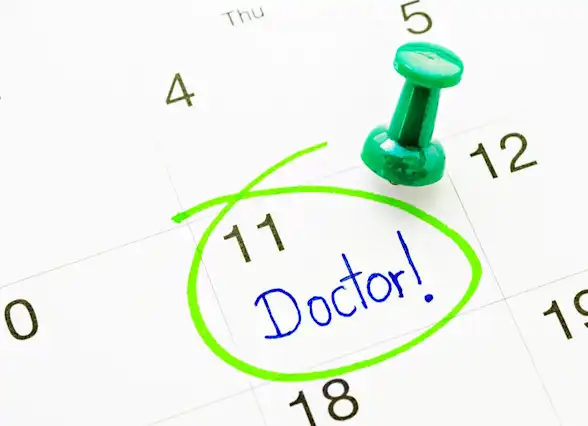Why Annual Wellness Visits are Truly Important
Regular check-ups include an evaluation of all body systems to determine disease risk and catch potential problems early.
Get insurance benefits, legal documents, and medical records in one place

Helpful Highlights
Foremost, providers see things people may not notice themselves. Spending a lot of time with someone blinds us to subtle changes occurring that a provider can detect.
The best time to see a provider might be when we're feeling well because it's easier to highlight signs and symptoms that indicate we are not well.
Bringing a family member, friend, or care partner to an annual checkup can be helpful for all involved—including the provider—offering another perspective and supporting the individual during the visit.
Adhering to any follow-up recommendations, treatments, or referrals is an important part of ongoing health and well-being.
There’s no rule on how often older adults should see their healthcare providers, but most should have at least one medical checkup a year, even if they seem perfectly well. During annual wellness visits, the provider can evaluate for disease risk, review medications, check on health concerns and chronic condition management, talk about lifestyle topics, and go over recommended tests.
But why have an annual checkup, really?
A provider can do routine tests that we can't access at home, such as bloodwork, EKG, and other screenings. These provide important insights into health status.
Age increases the risk of health problems and many conditions don't have symptoms until they're really bad. A provider is more likely to find a health problem than we can on our own.
Problems and risk factors can be found that increase the likelihood of getting sick in the future and spark a discussion on what can be done about it.
It's an ideal opportunity to review medications, which is essential for safe and effective care. The healthcare provider needs a complete and current list of all prescription and nonprescription drugs, dietary supplements, and herbal products. That way, the provider has the most up-to-date list and can identify any potential interactions, any that are possibly causing health problems, and confirm that medications are effectively managing chronic illnesses.
Annual visits also highlight habits that may need improvement—diet, exercise, sleep, stress—and provide sound, personalized advice from a medical professional.
Staying up-to-date on recommended vaccinations and getting the latest information on managing chronic conditions is easier during these visits.
Preventive care saves money by reducing the need for costly treatments through early detection and intervention.
Only a provider can refer someone for additional tests or specialists when needed. They are key in coordinating total care.
Finally, providers can review recommendations with care partners or family members attending the visit, offering guidance and support in helping someone maintain independence and well-being.
RESOURCES
National Council on Aging (NCOA)
No content in this app, regardless of date, should ever be used as a substitute for direct medical advice from your doctor or other qualified clinician.
Get more support and guidance on insurance benefits, medical records and legal forms.
Helpful brings together your insurance benefits, legal documents, and medical records in one personalized place — so you always know what you have, and never have to search again.

Technology for Health Tasks. Mental Health for the Tough Stuff.
Helpful connects your medical records, insurance, and caregiving tasks automatically. And when you need more than logistics, a therapist is here to guide you.
In-Network and Covered
For Individuals, Couples and Families
HIPAA Compliant, Data Stays Private


Healthcare Tasks Simplified

From syncing records to spotting drug interactions, Helpful does the heavy lifting, turning complex health info into clear tasks and showing you benefits you can actually use, giving you clarity and control over your care.

In-Network Mental Health

Our licensed therapists are here to support you and your loved ones through stress, burnout, and life’s hardest moments, with an inclusive, compassionate approach that works with most insurance plans.

Create Legal Documents

Plan ahead by creating will, trusts, advance directives and more, that ensure your wishes are honored in the event you can’t speak for yourself -with Helpful guiding you every step of the way.